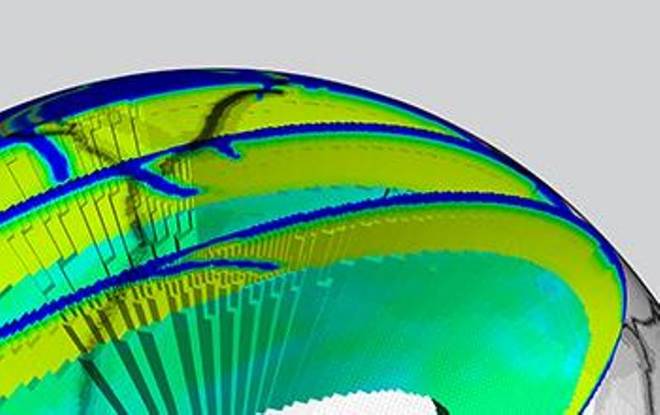Meet the supercomputer that costs N21.7b. Yes, that”s $60m
America’s National Science Foundation (NSF) has awarded $60 million (that’s N21.7 billion) to fund the largest and most powerful supercomputer ever. The supercomputer to be called Frontera, will serve science and engineering research community. "For over three decades, NSF has been a leader in providing the computing resources our nation’s researchers need to accelerate innovation," […]


America’s National Science Foundation (NSF) has awarded $60 million (that’s N21.7 billion) to fund the largest and most powerful supercomputer ever.
The supercomputer to be called Frontera, will serve science and engineering research community.
"For over three decades, NSF has been a leader in providing the computing resources our nation’s researchers need to accelerate innovation," said NSF Director France Córdova.
"Keeping the U.S. at the forefront of advanced computing capabilities and providing researchers across the country access to those resources are key elements in maintaining our status as a global leader in research and education. This award is an investment in the entire U.S. research ecosystem that will enable leap-ahead discoveries."
The NSF award is the first step in a multiphase process to provide researchers with a "leadership-class" computing resource that offers the most advanced capabilities for science and engineering research.
Frontera has the highest scale, throughput, and data analysis capabilities ever deployed on a university campus in the United States.
Texas Advanced Computing Centre at University of Texas will build Frontera, with primary computing system provided by Dell EMC and powered by Intel processors.
Frontera will offer more than five times greater capacity than the previous leadership-class NSF-funded computing system.
In addition, Frontera’s graphics processing unit (GPU) will accelerate discoveries in dynamic research areas such as deep learning and molecular dynamics.
"Supercomputers — like telescopes for astronomy or particle accelerators for physics — are essential research instruments that are needed to answer questions that can’t be explored in the lab or in the field," said Dan Stanzione, TACC executive director.
"Our previous systems have enabled major discoveries, from the confirmation of gravitational wave detections by the Laser Interferometer Gravitational-wave Observatory to the development of artificial intelligence-enabled tumor detection systems. Frontera will help science and engineering advance even further."
